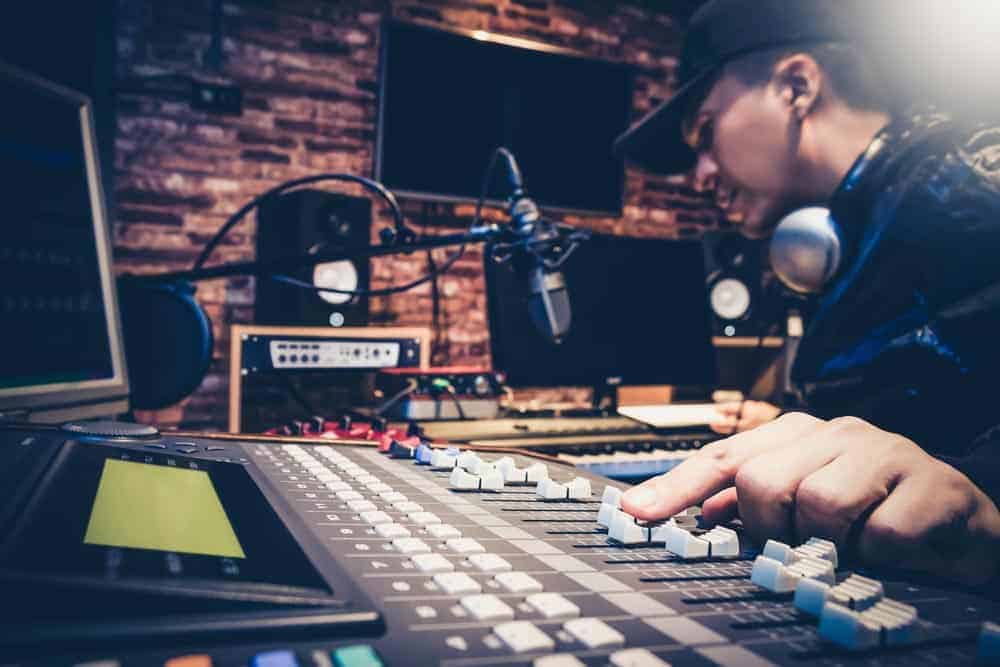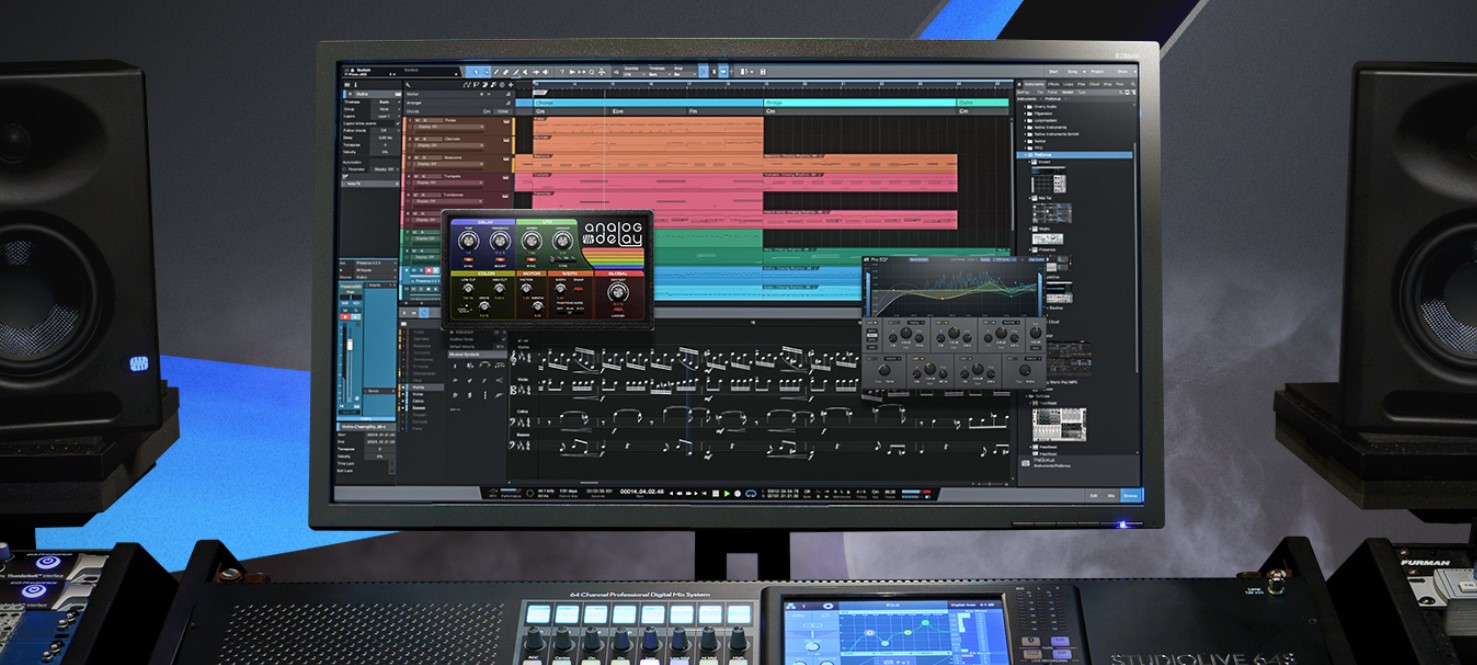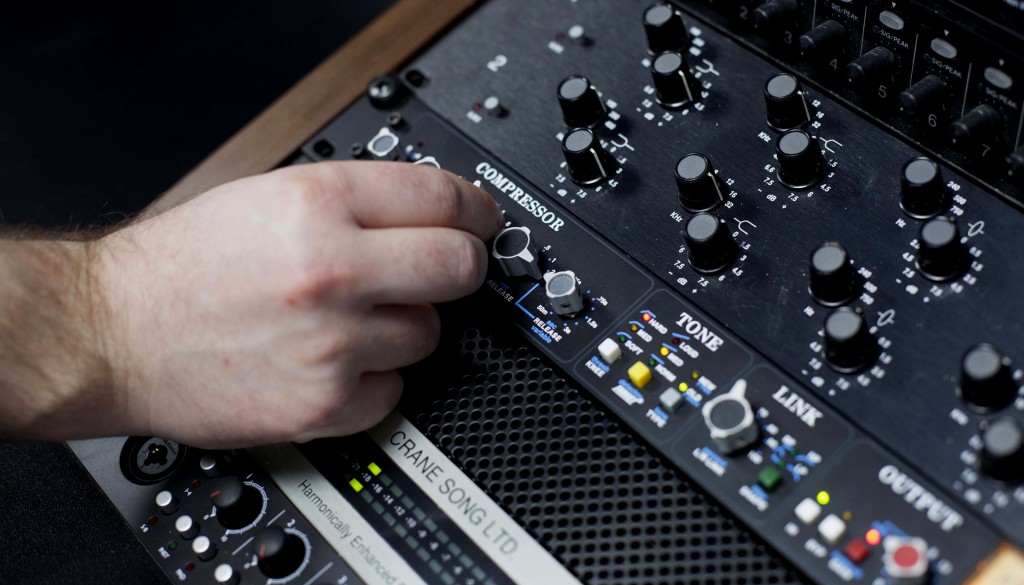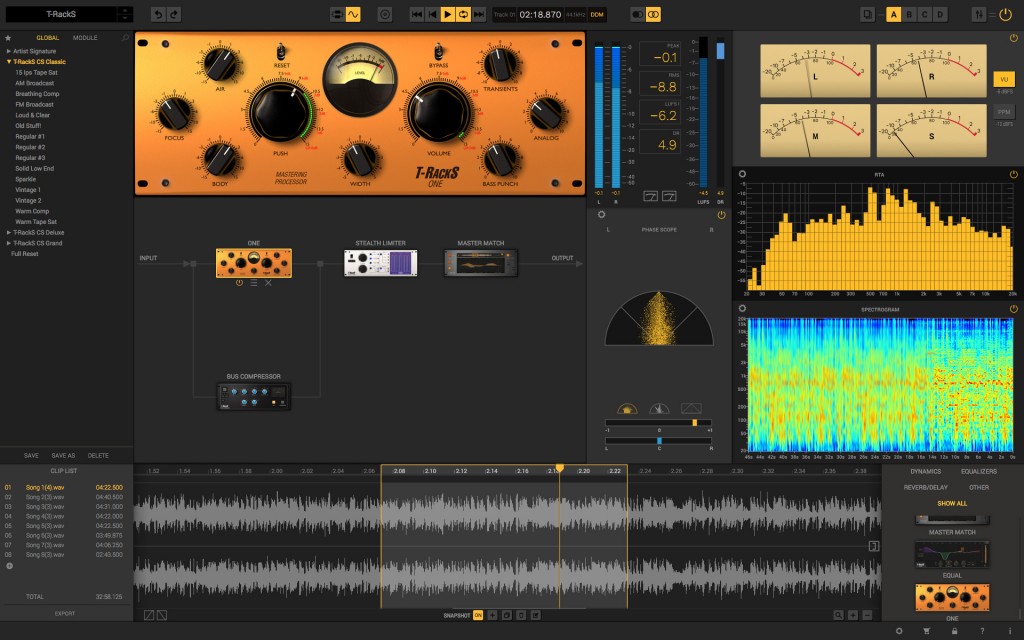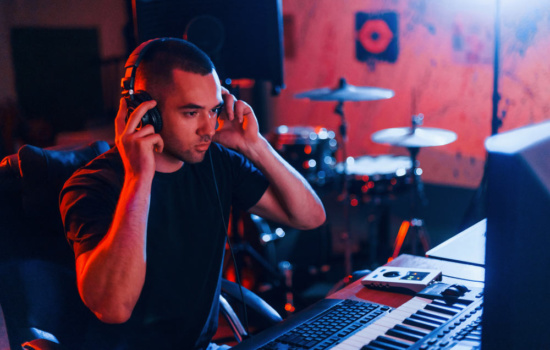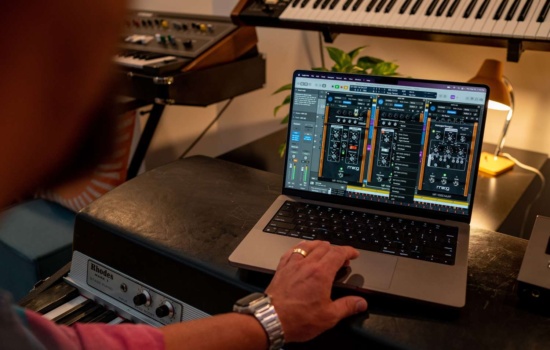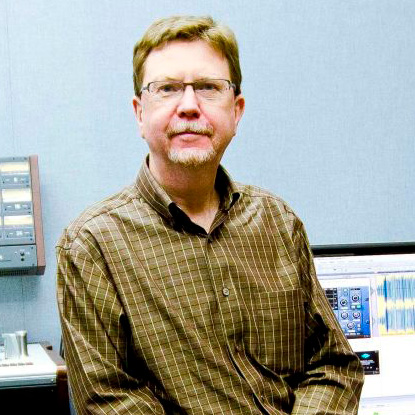Mixing is the bringing together of the individual musical elements of your song. It’s a creative process where use you level, panning and effects to craft your finished track.
When making music you are likely to record a number of different tracks: that could be guitar, bass, vocals, synthesizers, instruments and probably several tracks of drums. These will exist independently within your DAW enabling you to change the level of each element to get the right “mix” of sound.
You also have the opportunity called panning to position sounds into a stereo space. So if you have two guitars you may want to pan one a bit to the left and the other a bit to the right. The lead vocal will sit well in the middle but backing vocals should be panned slightly one way or another to give them a bit of their own identity.
During the mixing process you might want to add compression and EQ each track to help them find some space in the mix. Compression brings the dynamics closer together whereas EQ can make sounds brighter or darker. You may want to add reverb to place instruments into a space or use effects like chorus, delay and filtering to add creative changes and interest.
When you’ve finished mixing you create a “mixdown” which is a finished, completed version of your song that you would happily listen to on any music system. Or is it actually finished? Where does the Mastering come in?
